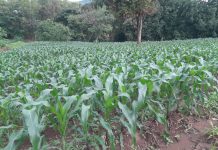Africa-Press – Malawi. Some serious fact-checking on statements government officials make regarding issues of national interest will expose glaring gaps between politics and reality. Well, that is politics in the Malawi sense—where everything is said or done to salvage support or consolidate authority for the next project.
And even President Lazarus Chakwera is aware of that. He recently admitted that the figures that had been published as those of farming households that had accessed subsidised farm inputs might not have been a true reflection of reality.
Perhaps we have been so much accustomed to lies that our interest to question whatever is uttered with some tinges of suspicion is still customarily thrust to the periphery of our thoughts.
But that should change and quickly so, because the mindset change our leaders and everyone else have been preaching about is a complex phenomenon where our interest to question public pronouncements must grow.
From the President’s statement, that some suppliers simply accessed coupons from beneficiaries of subsidised inputs and made it appear like the farmers had accessed the inputs, there is a message to take home.
Clear elements of criminality are everywhere in such conduct, if it indeed took place. First, the traders duped the government into believing they had supplied their allotted chunks to farmers when nothing of that sort or just a little of it had happened.
In the process, they stained the real numbers and compelled the Ministry of Agriculture to announce what was not true. So far, we do not know yet how many farming households really accessed the farm inputs.
In fact, there are suppliers who are constantly awarded contracts to supply the inputs but never dependably undertake their assignments. There should be a reason such traders are not scraped off the list of contractors.
Second, they stole from poor farmers who obviously offered their coupons at lower prices. So, if, for instance, the suppliers accessed each coupon at K5,000 where, in essence, the farmer would buy two bags of fertiliser at K15,000, the supplier made an illegal profit of K10,000.
That is on top of the one they already made in the deal where government had pegged the price of each 50-kilogramme bag at a maximum of K27,000. If that is not a grave matter requiring some serious investigation, then we should forget about the Affordable Inputs Programme (AIP) ever being effectively reformed.
Several opportunities have availed themselves for officers who would cleanse the programme, but it is all talk after talk without much progress. Now, a whole president stands at that revered dais and announces that suppliers help in mismanaging AIP and nothing happens to those dealers. It would be a very bad precedent.
Obviously, Chakwera did not go down to the villages where he conducted an investigation on AIP performance and discovered the suppliers’ turpitudes. He was provided with that information by public officers who should endeavour to take the issue beyond informing the President.
Now, there is also something interesting happening with AIP. Government announced that it would no longer engage services of middlemen in the procurement of fertiliser as a way of reducing costs. The general understanding was that government would directly engage the manufacturers and get the commodity home.
It appears that is not the case. The Smallholder Farmers Fertiliser Revolving Fund of Malawi has just advertised in the papers an invitation for bids from potential suppliers— obviously the same let-downs who are vexing the programme.
With nothing being done to suppliers who allegedly purchased coupons from farmers to hoodwink government into believing that the fertiliser had arrived in the country and had been applied to crops, we should expect another AIP disaster.
It is as if we have not learnt enough lessons from previous programmes. Government struggled a lot last year to get the inputs into the country, with some suppliers refusing to sign contracts while others blatantly failed to deliver even after agreeing to.
You could sense some kind of sabotage in the deals but our leaders seem not to learn enough from every crisis that comes their way. And they do not even care to always say the truth about public initiatives. For a long time, they have ridden on the compliance of Malawians who are less interested in fact-checking what these leaders freely publicise.
So, they will say one thing today and implement another tomorrow without being chastised at all. They will promise to do this and never fulfil the promise or do a different thing the other day.
In AIP, a great opportunity availed itself for authorities to firmly address glitches that siege the programme. If experience is anything to consider, nothing will happen to suppliers who ruin the initiative.
In fact, they may as well appear on the next list of successful bidders tasked with bringing into the country one of the most strategic commodities—but they will not fittingly do the job.
For More News And Analysis About Malawi Follow Africa-Press






